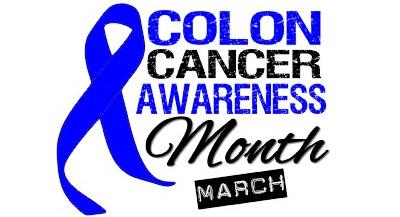By Imogène Taveau on behalf of the Medical Society
All About Colorectal Cancer
This march was a month for increasing awareness about colorectal cancer, a cancer starting in the colon or rectum. With an approximately 97,220 new cases of colon cancer and 43,030 new cases of rectal cancer estimated for 2018 in the United States alone, colorectal cancer is one of the most common and most aggressive cancers, so it is important to stay informed.
The cells in your body are constantly dividing in a natural process called mitosis, however sometimes there is a problem and some of the cells start dividing uncontrollably and begin to destroy body tissue. That is what we call cancer; a disease caused by an uncontrolled division of abnormal cells in a part of the body. Colorectal cancer begins in the colon or rectum, and so that means that there is an uncontrollable division of cancer cells in those areas.
This brings us to our first question; how does colorectal cancer start?
Colorectal cancers usually begin as a growth on the inner lining of the colon or rectum called a polyp. There are two main types of polyps; Adenomatous polyps (also known as adenomas) and Hyperplastic polyps and inflammatory polyps. It is worth noting that polyps are not necessarily cancerous, in fact most are simply benign growths, however they can grow into a cancer over several years.
Adenomatous polyps are less common; however, they hold the higher risk for becoming cancerous later on.
Hyperplastic polyps and inflammatory polyps are much more common; however, they rarely become cancerous.
Polyps are more likely to be cancerous if they are larger than 1cm, more than 2 are found or if dysplasia, which is when the cells in either an area of the lining of the colon/rectum or an area of a polyp look abnormal, is seen on after the removal of a polyp.
We know about polyps, but what are the other symptoms of colorectal cancer?
Other symptoms of colorectal cancer include:
- A change in bowel habits lasting longer than a few days
- Rectal bleeding
- Blood in the stool
- Cramping/abdominal pain
- Weakness and fatigue
- Unexplained weight loss
- A sense of a lack of bowel movement relief
What are the risk factors for colorectal cancer?
- Being overweight/obese
- Lack of physical activity
- A diet high in red and processed meats
- Smoking
- Excessive alcohol use
- Being older
- Family history (Polyps, Inflammatory Bowel Disease, etc)
- Ethnicity (Ashkenazi Jews have the highest rates of colorectal cancer worldwide)
- Having type 2 diabetes
Are there any preventative measures that can be taken?
The key trick to preventing colorectal cancer is to get screened! It is incredibly important as polyps can take as much as 10-15 years to become cancerous, so the key is finding them early. The recommended age to start screening is 50, however, as with other cancers, if you have a family history of colorectal cancers then you should get screened earlier.
There is no way of completely preventing colorectal cancer, however you can reduce the risks through staying at a healthy weight, increasing physical activity, limiting red and processed meats and having a diet high in fruits and vegetables as well as limiting your alcohol intake are all factors that contribute to a lowered risk of colorectal cancer. Not smoking is also key, so quit while you can if you currently smoke.
What treatment is there for colorectal cancer?
There are two types of treatment for colorectal cancer; local and systematic.
Local treatment means that it targets only the affected area and not the rest of the body, and so are used more for earlier cancers. These treatments consist of Surgery, Radiation therapy, Ablation and Embolisation.
Systematic treatment is when cancer cells all over the body can be targeted rather than just a specific area. This is done through drug treatment, either orally or directly injected into the bloodstream, and includes chemotherapy, immunotherapy and targeted therapy.
In conclusion, colorectal cancer is one of the most common cancers at the moment, and yet it is barely spoken about. Remember, stay healthy, stay aware, and get screened.



